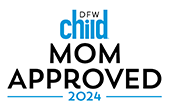Are you cultivating a fixed mindset or growth mindset in your child?
Researchers conducted a survey of parents of school aged children to see how they show value to academic performance.. The majority of parents thought it was necessary to praise their children’s intelligence in order to give them confidence in their abilities and motivate them to succeed. Instead, this approach can lead to fixed mindsets in children. Kids with fixed mindsets believe “my abilities are what they are.”Instead, the most motivated and resilient students demonstrate a growth mindset. They are the ones who believe their abilities can be developed through their effort and learning. These students are resilient and persevere when tasks become challenging.
A study of students’ brain waves revealed students with a fixed mindset were interested in whether they got an answer right or wrong, but when they were wrong, they paid little attention to the correct answer. Students who were praised for their intelligence later lied about their scores. They felt the errors were so humiliating that they could not own up to them. The students failed to persevere, believing they were no longer “smart,” and therefore unable to meet academic challenges.
Students with a fixed mindset typically think it is best if they:
– Don’t make mistakes – “I’m too smart to make mistakes.”
– Don’t need to work hard –”I’m smart and learning comes naturally to me.”
– Don’t try to repair mistakes- “I was wrong, and that is the end of it.”
Students with a growth mindset generally:
– Take on challenges
– Work hard
– Confront their deficiencies and correct them
How should parents talk to their children in order to develop a growth mindset?
Wow, you got 10 out of 10 right! What strategy did you use to get a perfect score?
What can you learn from this mistake that will help you do better next time?
I am proud of how hard you worked on this project and look at how your hard work paid off!
The strategies you used last time didn’t work. Let’s take a look at them so I can help you figure out better strategies to use next time.
You’re becoming such a good learner!
Smart is not something you are; it’s something you become. Let’s figure out how you can become smart at this assignment.
What is your child’s mindset? Ask yourself, what is your own mindset? Have a conversation with your child as you discuss your child’s report card. Use any upcoming parent teacher conference to examine outlooks, attitudes, and strategies that are or are not supporting your child’s academic progress.
Where applicable, praise your child’s positive skills and attributes. Celebrate instances you observed that contributed to positive indicators. When necessary, examine areas of poor performance and strategize with your child about how he or she can turn a weakness into a strength. Make your expectations very clear in terms of why you value attributes or traits of resiliency, and how they can and will develop into habits that will serve your child well. Grades are a distant second to the level of effort a child invests in personal learning in any setting.



